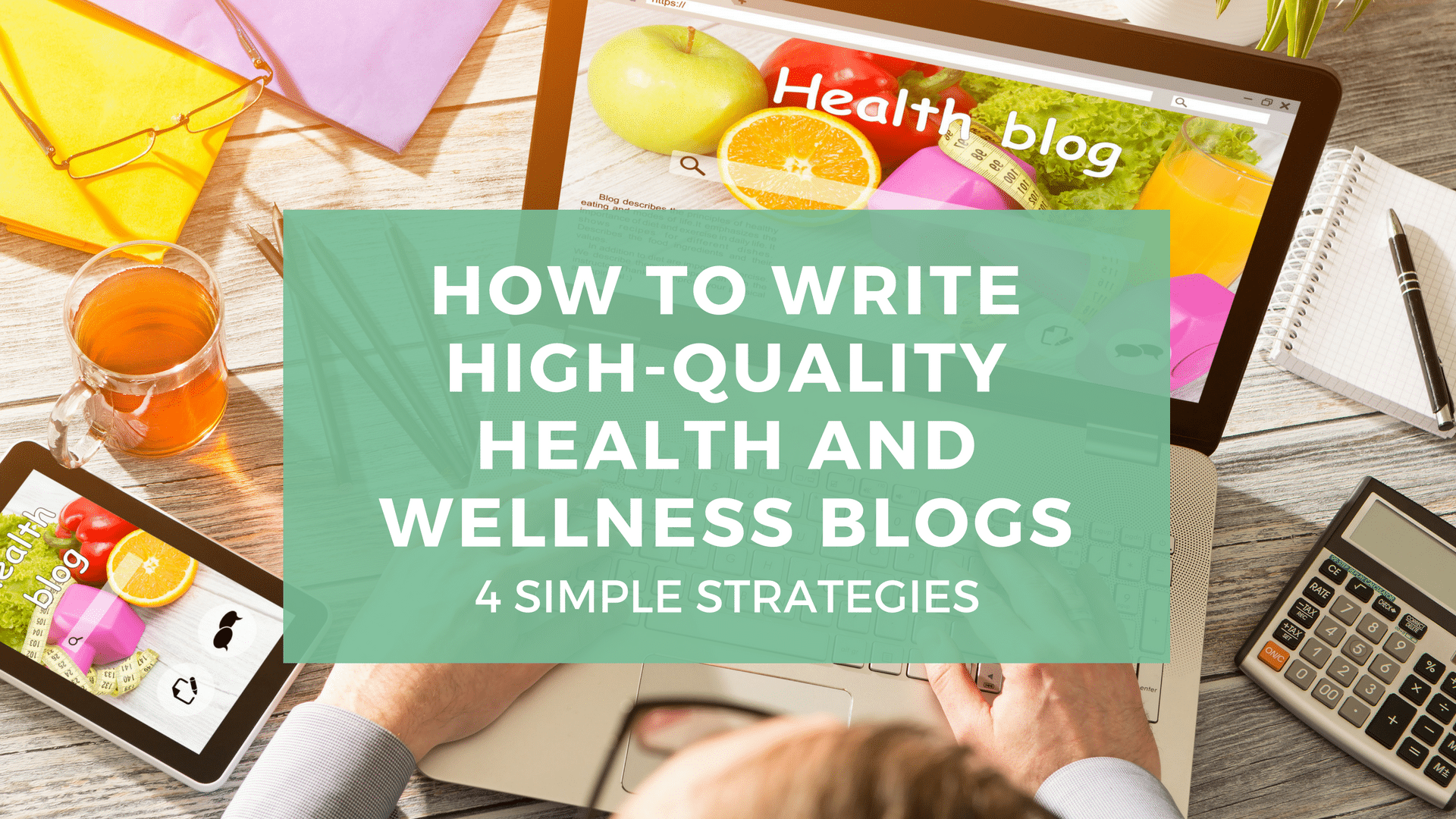Health and wellness blogs are a friendly, new, and innovative way of communicating to an informed audience complex scientific topics. What’s more, writers prefer blogging for their health advice. We also like to post compelling content–and they are likely to follow the blog’s health advice or suggest it.
Sure, hopefully, people should get their health advice from health professionals-but they don’t, and whether we like it or not, Dr. Google is a reality. With that in mind, it’s time to embrace this changing consumer behavior and focus on high-quality, socially responsible blogging that helps our reader to make better health and well-being custom book reports by navigating to this site Cheapcustompapers.
Health and health bloggers aren’t experts: you’re the link between science/experts and the public as a fitness blogger. We don’t need to be an expert. You would generally not aspire to be –unless you already have relevant qualifications and a substantial amount of experience in a specialty field.
So while you don’t have to be an expert to be a health blogger, you still have to be aware that readers are going to make their health decisions based on your content. That’s why integrity, precision, and social responsibility must be at the core of any health blog of high quality.

Writing authoritative health and wellness posts: I have published health blogs over the years for many different brands and companies in the health care sector. And, all my companies have slightly different procedures for internal review. Some want every single sentence marked with a valid reference, while others want a reference list at the end of the piece to satisfy.
Such internal review procedures, frequently including a medical review by doctors and health practitioners, have helped me learn the critical best practices of high-quality blog writing.
You need to take the concepts of writing professional academic papers and’ blogging’ them from a custom book report to make it trustworthy health and wellness posts.
Here’s how you can create excellent blog content for your custom book report for health/ wellness blog you to do follow these below steps.
- Understand your topic: You’ll cover a wide range of subjects as a health and wellness blogger–some you’ll know well, others will be new to you.
And if you don’t understand what you’re writing about, you can never write well on something from the custom book report. Take some time to study your history. Spend reading even more time than studying, if you need to.
You’re not supposed to become a subject expert. That’s why you are talking to experts and using reputable sources to perform your analysis. Reading extensively, reading a variety of sources, talking to experts–and making sure you understand exactly what you’re writing about before you start writing.
You can also search the subject to see what was written about it–and this also helps to ensure that you provide a unique perspective or angle. Once you’ve done work, you can feel confident that you understand the topic well enough to reflect it accurately.
When you feel pressured to meet a deadline, you may need to reconsider your schedule and spend more time on yourself. Knowing the topic often means knowing what your reader wants to know about it. So, you also need to be clear about who your audience or ideal reader is, why this topic is important to them, and how you help them out.
- Backup your health claims with facts: Back up with proof any health and wellness blog argument is best practice. This has two aims–it helps verify what you’re saying is true and it gives your readers confidence in your advice.
Duh’ I hear you’re thinking. Many health writers know that this is what we need. Yet, how easy it is to forget this simple fact would surprise you–even if you are an experienced writer. “Exclusive diets cause anxiety and orthorexia, an obsession with eating healthy.” This is a point I recently read in a blog article on myth-busting superfoods.
I know if I sent this to one of my customers, it’s going to be sent back to me, circled, with a specific reference question and more detail. What’s more, if your article is about modifying behavior or the viewpoint of your reader, then you’ll have the best chance to do that if you can back up your medical claims with convincing evidence.
Always, make sure that your sources are credible when you’re collecting evidence for your claims. To find out if a website is reliable, ask yourself: has the medical advice been peer-reviewed? Is it obvious who wrote it, and who is funding the site? How the latest is Information Source? Government health pages, libraries, non-profits, and official organizations are perfect places to find material that can be trustworthy.
- Studies elaborate: Don’t just throw in the expression ‘ research suggests X is linked to Y ‘ and call it a day. When you’re writing blogs about health and wellness, your readers need information. Consider who, what, where, where, and why.
You don’t have to answer all these issues, but it’s best to focus on at least some of them: who wrote it–who’s in the research team, who’s funded the study, and who’s been studied?
- What was being investigated-what were the research’s initial goals and objectives?
- Where was it published-where was the work published in which medical journal and where was the research team?
- When was the research published-how recent is it?
- Why is it relevant–why should your readers care about it, why is the result interesting or meaningful and why adds it to the evidence?
Do not forget the’ how’-how can this finding be used to help your readers understand the subject better?
- Put the findings into perspective: What do your readers mean by these findings? Why is it they would care? How can science be used to improve their health, alter their habits, or better understand the subject of safety?
A new study could be fascinating–it could even be a medical breakthrough, or there might be another explanation of why it’s worth writing about. Yet we can scarcely persuade readers to make substantial health decisions based on a single report. It’s always about reflecting the body of evidence correctly–and understanding how that analysis works within.
Putting the result into context often means contemplating the underlying meaning you take home. What do you want to get your readers off your blog? Aim to give somewhere to your readers to go after they have finished reading. This could be a guide to further research, an organization to go to for further advice, a helpline, a connection to another of your forums, a call-to-action to leave a comment, or an invitation to sign up to your newsletter.
Give your readers somewhere to go, so they don’t have to wonder,’ where to go from here? Prepared to write excellent blogs on health and wellness? It’s also about strategy, design, your voice, your writing style, and other writing strategies to become a good blogger and custom book report great health and wellness blogs.
But when it comes to improving the quality of your content, remember these four simple strategies: understand your topic–take the time to conduct thorough background research Back up all health claims with evidence–if you’re writing about research, health topics or diseases, provide evidence Putting the findings into perspective–think about what your claims mean to your readers, and address whom


